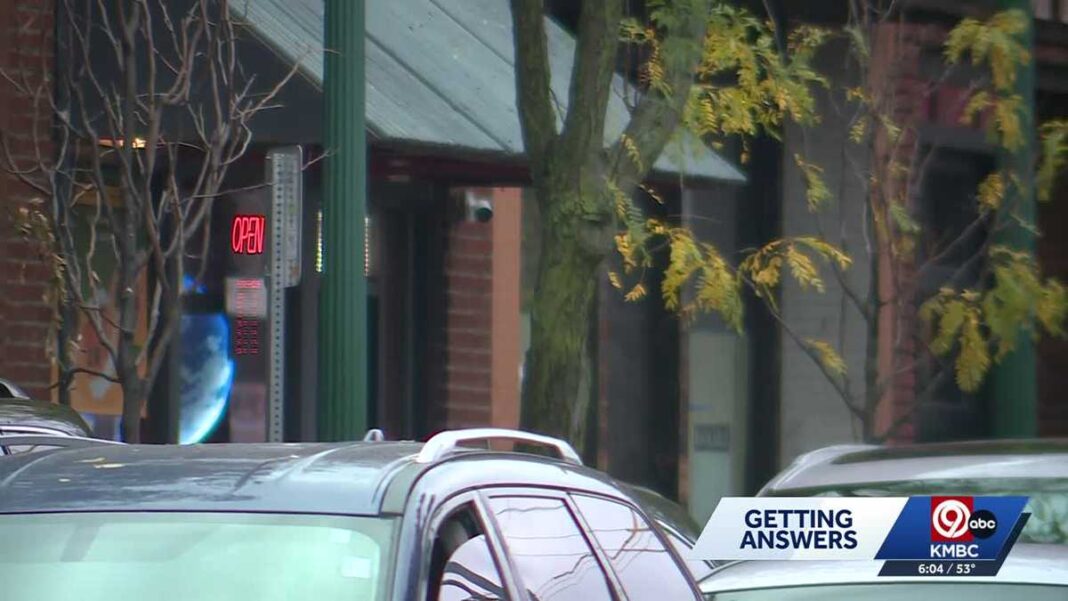Allegations of Racial Discrimination in Westport: A Closer Look
KANSAS CITY, Mo. — A significant 60-page federal lawsuit has emerged, revealing troubling accusations against leaders in Westport for allegedly discriminating against Black-owned businesses. Three enterprises—Euphoria LLC, UniKC LLC, and Sourze LLC—claim they faced systematic racial discrimination while attempting to establish their operations in the Westport area.
The Businesses Involved
Represented by attorneys Stephen Williams and Cecilia Brown, the plaintiffs contend that their aspirations to open restaurants and bars were unjustly thwarted. The allegations suggest a coordinated effort by local business leaders to maintain an exclusive atmosphere that effectively barred these businesses from operating in the area.
Racial Discrimination Against UniKC LLC
One of the primary cases outlined in the lawsuit involves UniKC LLC, owned by Frederick Vickers. According to the legal documents, Vickers signed a lease agreement with DB Icehouse LLC for a location at 4140 Pennsylvania Avenue. Shortly after signing the lease, he met with a neighboring business owner, sparking a series of interrogative queries about his clientele and the type of music his establishment would feature—with a particular focus on R&B and hip-hop.
The tone of this neighbor’s inquiries was reportedly dismissive and agitated, reflecting what the lawsuit describes as a clear bias against the perceived crowd that might frequent Vickers’ establishment. Williams highlights that while UniKC did not target any specific demographic, it was indicated that part of their clientele would likely include African Americans.
Allegations further assert that the very next day, Vickers received a cease-and-desist letter, and he found the locks to his leased building changed. The owner of the property allegedly stated that neighboring businesses opposed the type of crowd Vickers would attract. Eventually, DB Icehouse LLC offered Vickers $100,000 to terminate the lease agreement.
Racial Discrimination Against Sourze LLC
Another focal point of the lawsuit involves Sourze LLC, with its owner Robert Thorpe seeking to establish a dual-concept business comprising an art gallery and a daiquiri shop at 427 Westport Road. Initial discussions with Pulse Management and Westport Development LLC, owned by Matthew Vos and Jeremy Hurt, seemed promising, culminating in a signed lease.
However, the narrative shifted drastically when Vos and Hurt allegedly misinformed Thorpe, claiming the property was only zoned for clothing retail. They also suggested that introducing a daiquiri shop would “cannibalize” existing businesses in the area. Thorpe was reportedly informed during meetings that further bar or restaurant concepts—especially those attracting hip-hop audiences—were viewed as potential sources of violence in the community.
Racial Discrimination Against Euphoria LLC
The third business involved, Euphoria LLC, represented by Chris Lee, also faced hurdles. In 2024, Lee engaged with building owners to lease a venue once occupied by Ale House, intending to turn it into a restaurant and bar. After presenting his business plan, Lee reportedly received positive affirmations and even finalized a lease agreement.
However, shortly thereafter, social media circulated posts announcing a revival of Ale House under the name Ale House West LLC. With burgeoning excitement around the new venture, the Westport Community Improvement District reached out, allegedly compelling the owner of 4128 Broadway LLC to terminate Lee’s lease.
On multiple occasions, Lee was met with hurdles, including being denied access to the building during a hiring event. In conversations with the property owner and the CID executive director, strong indications of bias against the potential clientele Lee would attract were expressed.
Legal Context and Responses
Williams points to orchestrated collusion among local business owners aiming to inhibit African American entrepreneurs from accessing crucial business opportunities, which includes securing liquor licenses and entering contracts. The lawsuit, therefore, includes accusations of racketeering against the Westport leaders involved.
In response, a spokesperson for the Westport Community Improvement District outlined their belief in the inclusivity of the community, strongly refuting the allegations. They emphasized Westport’s history as a diverse and welcoming area, asserting that fostering a vibrant mix of cultures is not just a moral imperative but also a beneficial business strategy.
Damages Sought
The plaintiffs are seeking a staggering $70 million in damages, citing loss of revenue, emotional distress, and reputational harm as core reasons for their claim. Williams expresses confidence that the evidence will reveal a deeper systemic issue, involving not only local business leaders but also public officials in perpetuating exclusionary practices.
The unfolding lawsuit shines a spotlight on the underlying racial dynamics and challenges faced by Black entrepreneurs in established communities.



